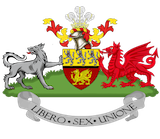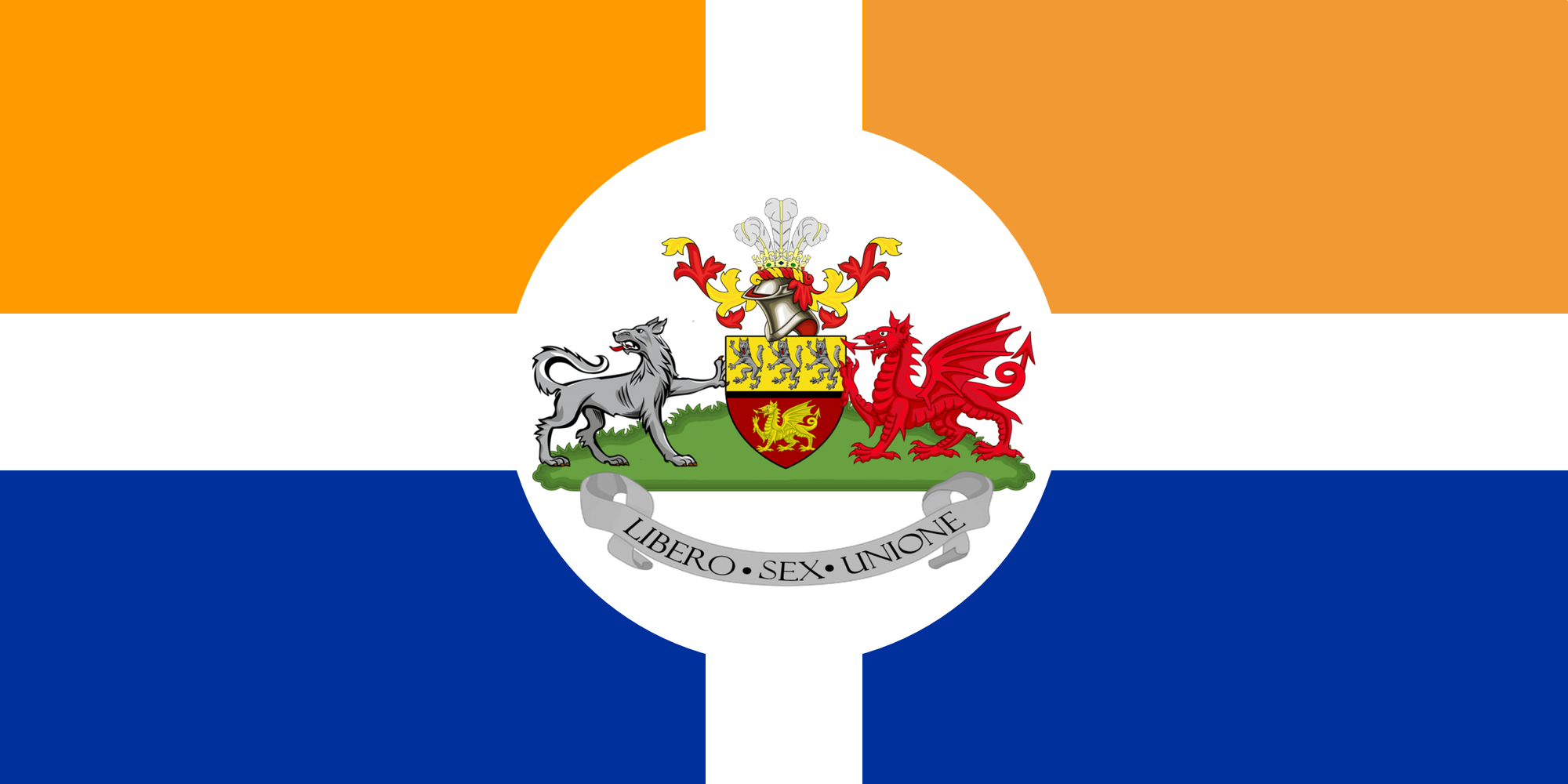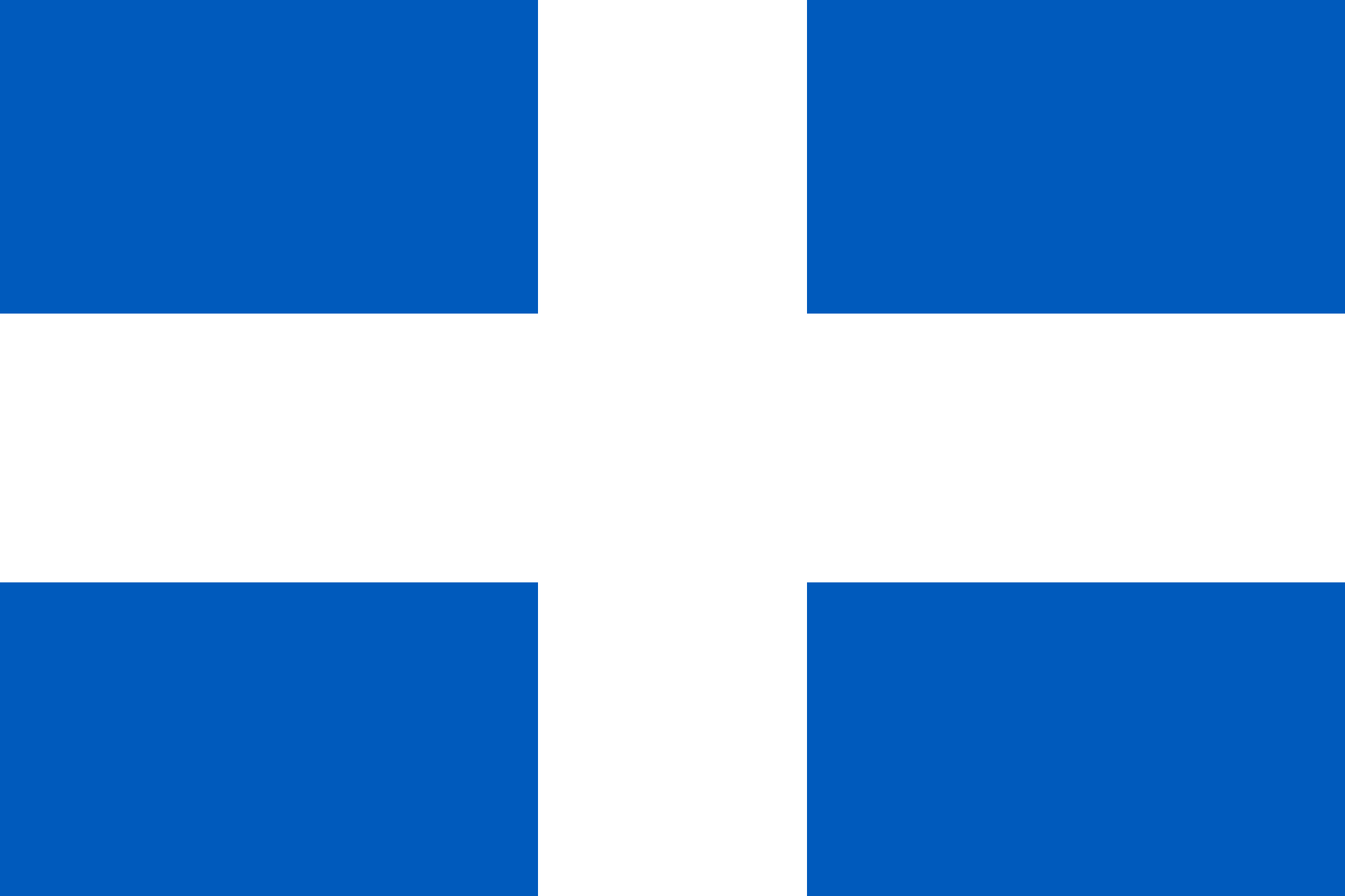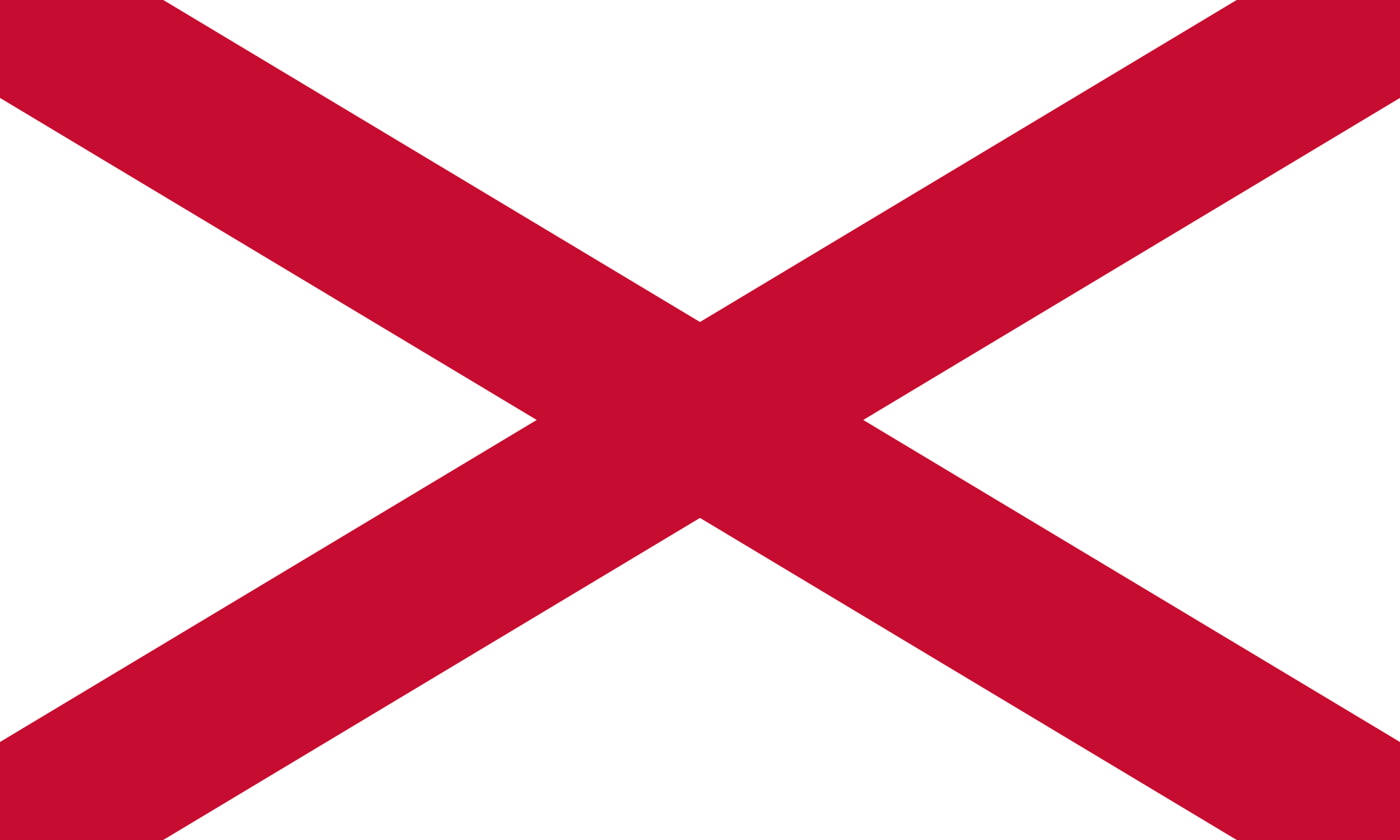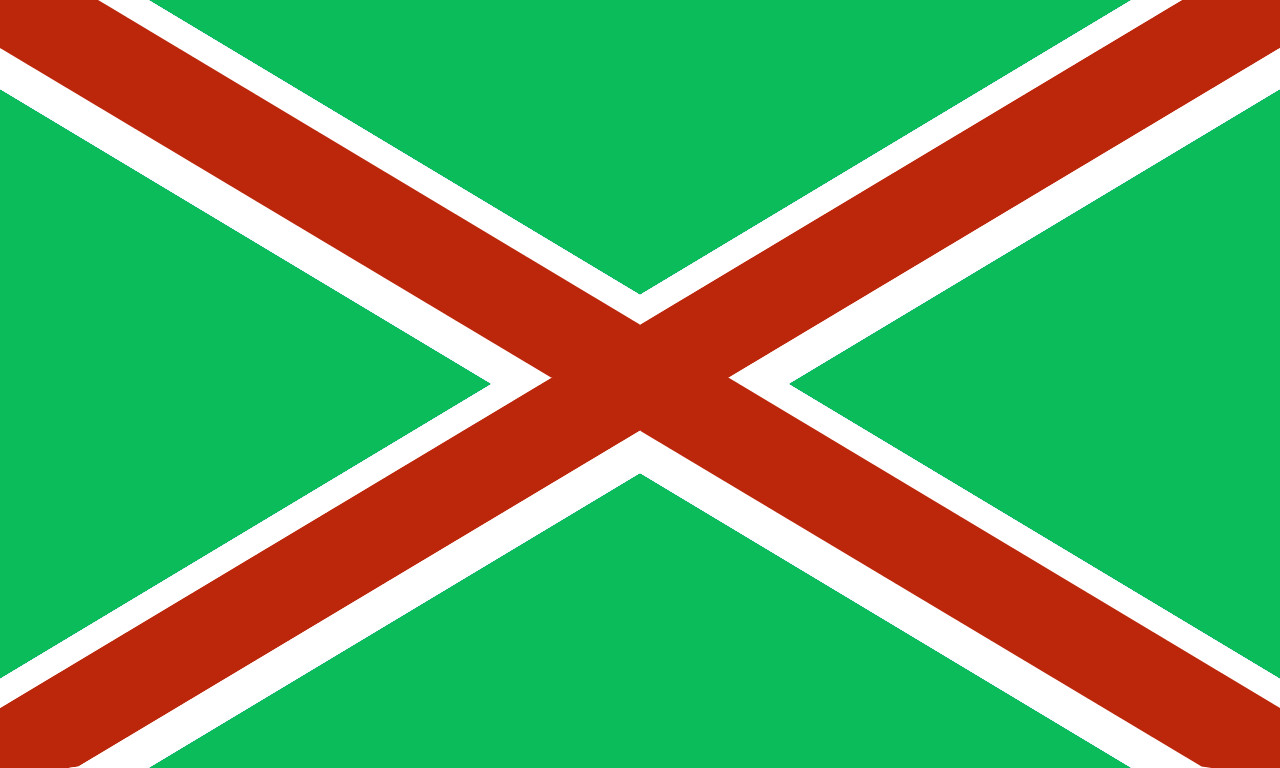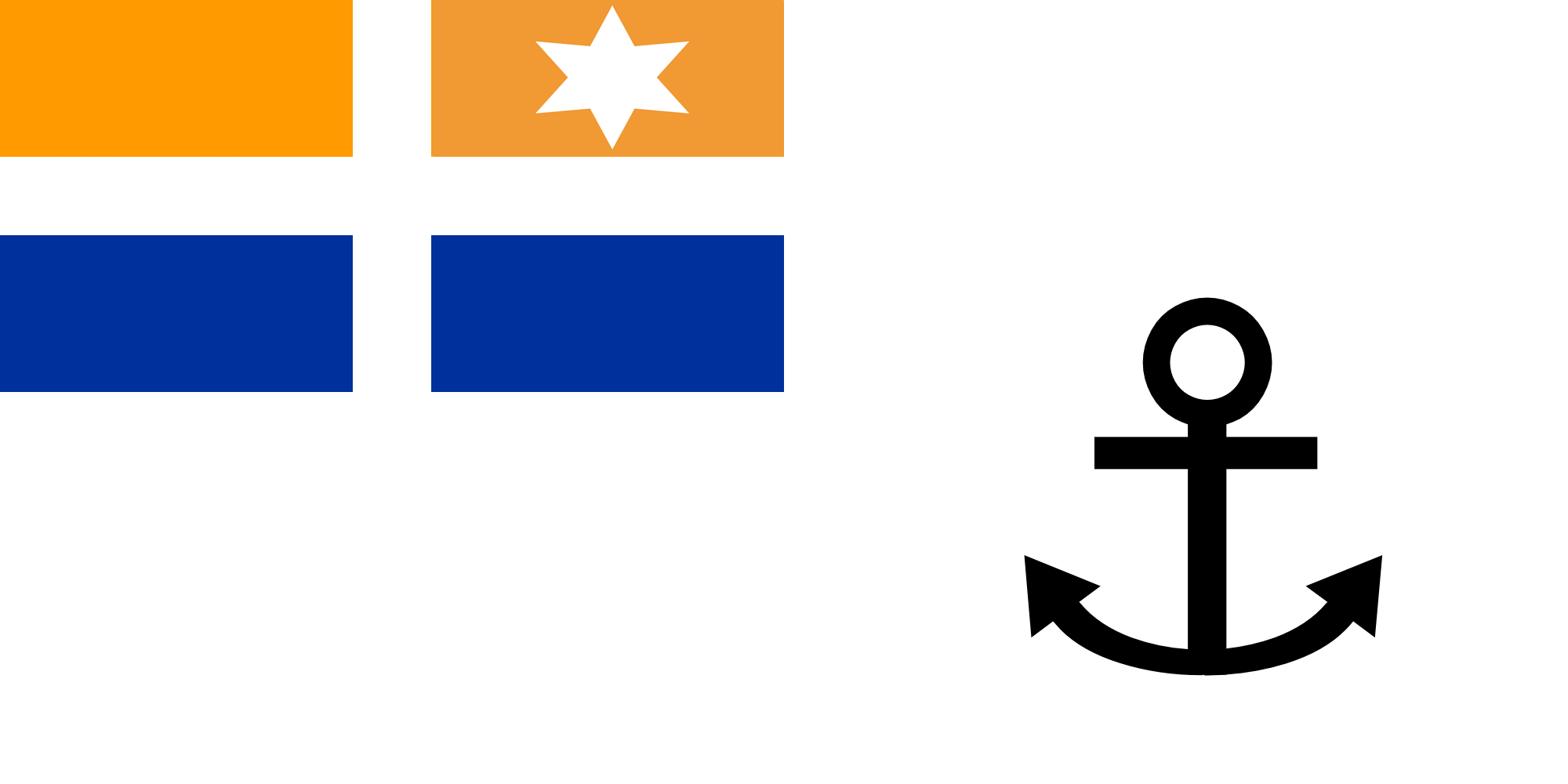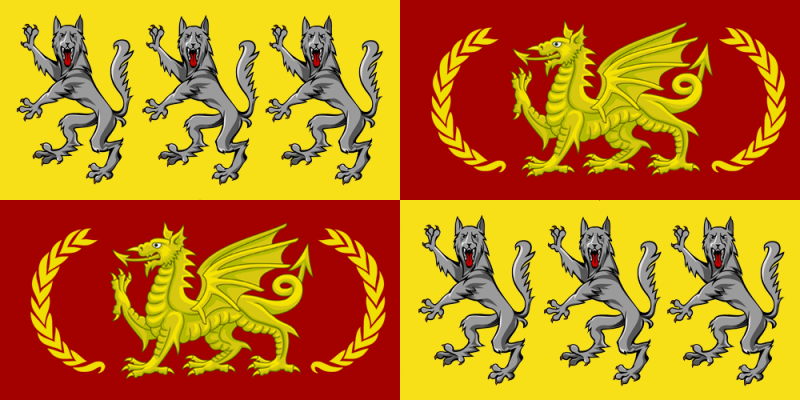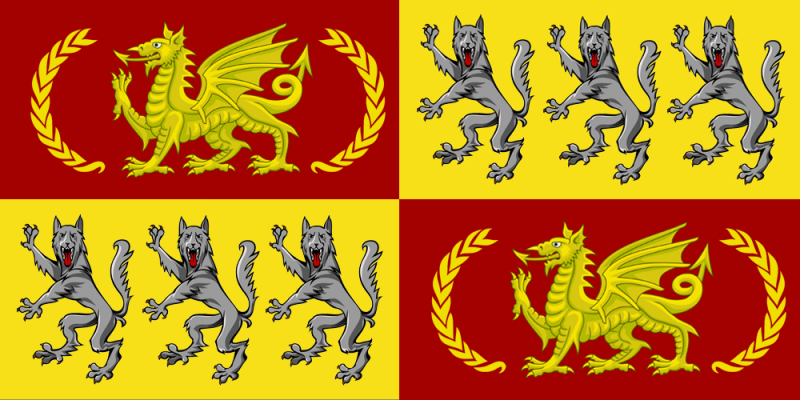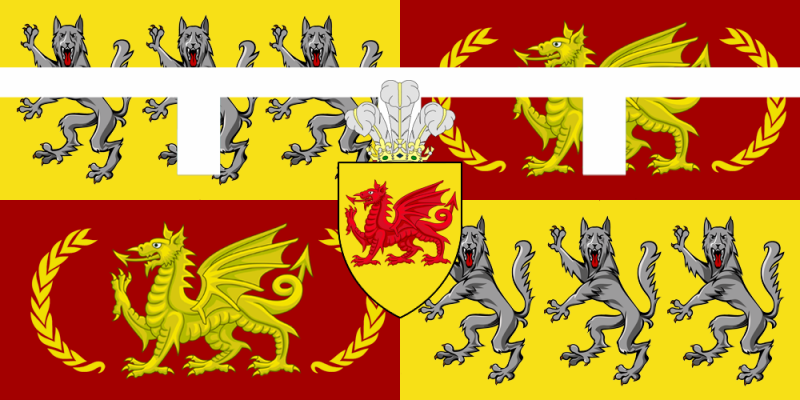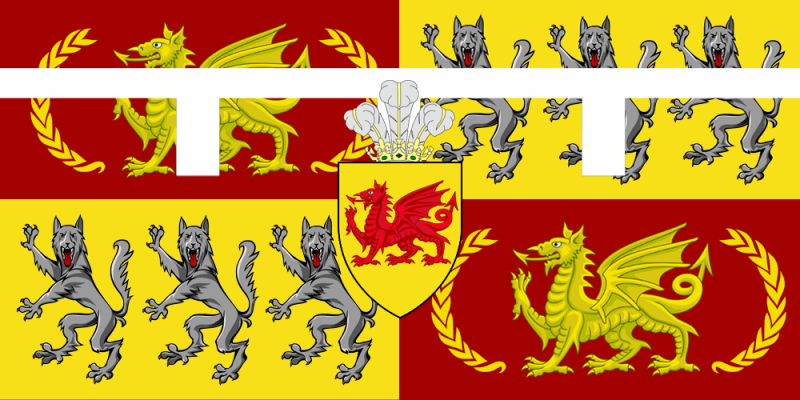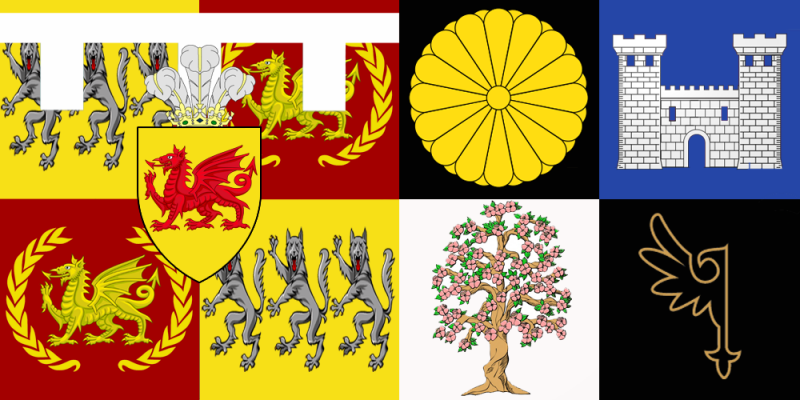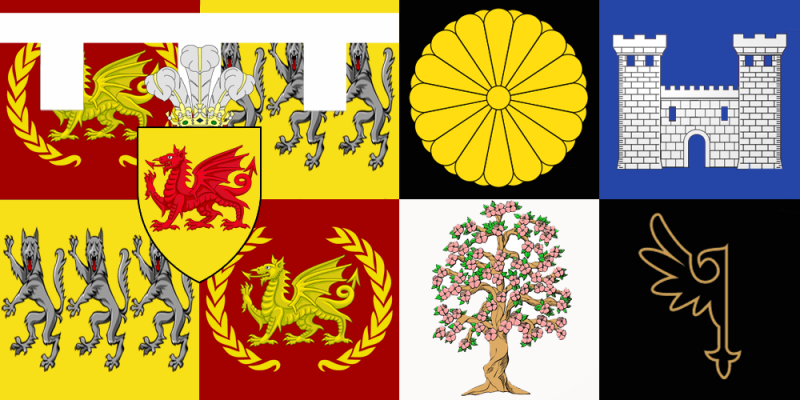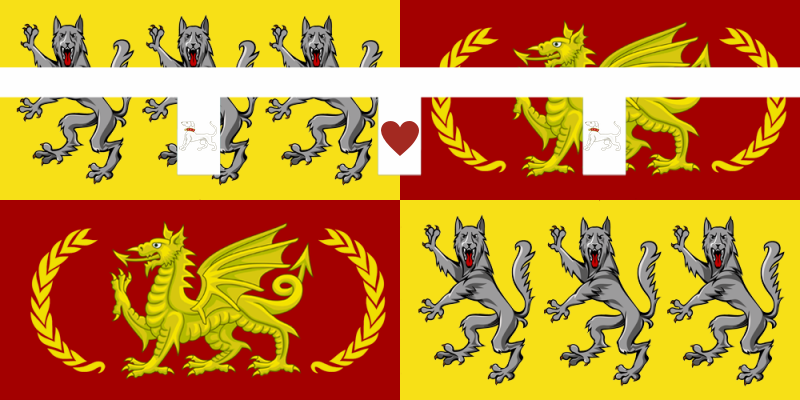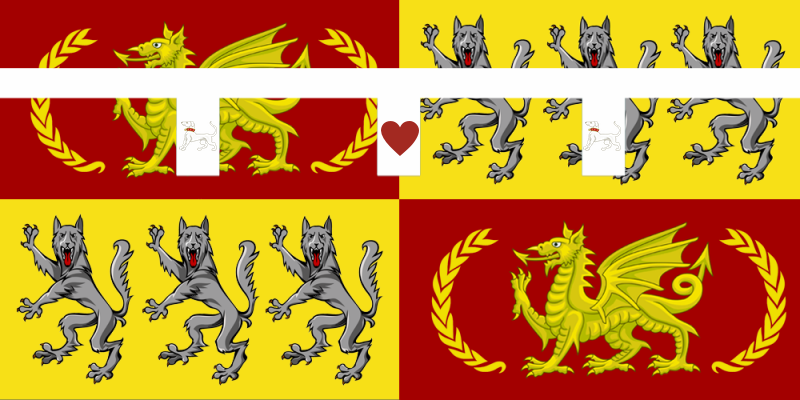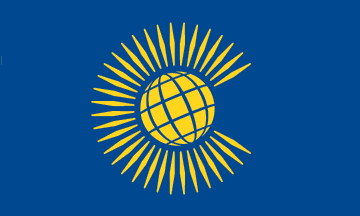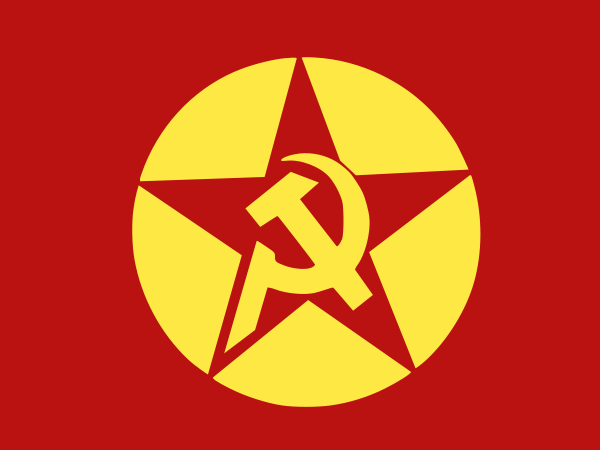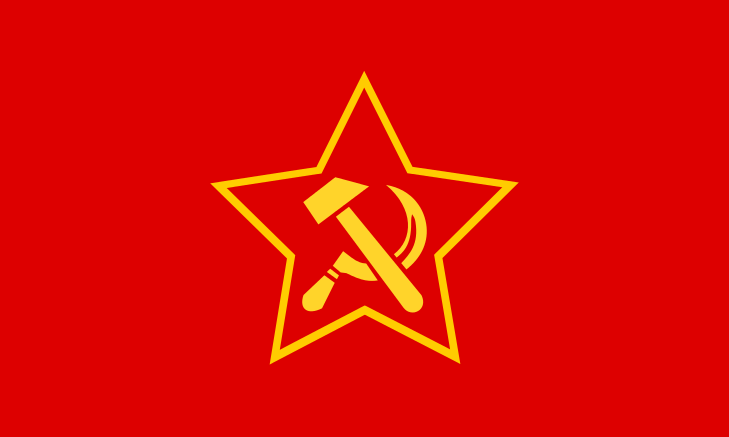PoliticsThe Kingdom of Dartfordia is a mostly federal democracy governed within the framework of a constitutional monarchy, in which the Monarch is the head of state and the Prime Minister of Dartfordia is the head of government. Executive power is exercised by His Majesty’s Government, on behalf of and by the consent of the Monarch, as well as by the Regional Governments of Southfleet, Wilmington, Hawley, Littlebrook, Stone and Darenth, and the Subregional authorities in Greater Hematite, the City of Jenka and Cydonia Island. Legislative power is vested in the two chambers of the Parliament of Dartfordia, the House of Commons and the House of Lords, as well as in the parliaments of Southfleet and Littlebrook, the assemblies in Greater Hematite, Wilmington, Hawley, Stone and Darenth, and in the council assemblies of Jenka and Cydonia Island.
Dartfordia’s 1924 Constitution is the act that defines the state, the monarchy and the distribution of power between central government and the provinces. However, very little is prescribed in the constitution, and thus a large part of the Kingdom’s constitutional makeup a collection of disparate written sources, including statutes, judge-made case law and international treaties, together with constitutional conventions. As there is no technical difference between the Constitution Act and any other piece of primary legislation, the Dartfordian Parliament can perform “constitutional reform” simply by passing another Act of Parliament, and thus has the political power to change or abolish almost any written or unwritten element of the constitution.
The reigning monarch is King George I, and the current Prime Minister is Daniel Cleaver MP.
Spoiler: Constitution • show
Constitution Act 1924
Whereas His Imperial Majesty George III of the Dartfordian Empire proclaimed on 1 July 1921 that should His Imperial Majesty’s Most Loyal Armed Forces be triumphant in the face of opposed ideology, the Dartfordian Empire shall be dissolved in favour of a Royal Kingdom with a constitutional monarch,
And whereas on 17 August 1923 His Imperial Majesty George III sadly but graciously passed, and his successor, James, proclaimed the desire to establish a Royal Kingdom with a constitutional monarch,
And whereas on the 6 March 1924 enemy forces surrendered to His Imperial Majesty’s Most Loyal Armed Forces in the City of Lowfield,
And whereas this Act has subsequently been amended by the Disestablishment Act 1937, Parliament Act 1948, Separation Act 1954, Representation of the People Act 1968, Judiciary Act 1971, Reunification Act 1992, Constitutional Amendment Act 1996, Digital Communications Act 2002, Devolution Settlement Act 2004, Marriage Act 2006, Cross-Straits Union Act 2014, Universal Rights Act 2014, and Cross-Straits Union Act 2017,
Be it therefore enacted by the Emperor’s most Excellent and Imperial Majesty, by and with the advice and consent of the Lords Spiritual and Temporal, and Commons, in this present Parliament assembled, and by the authority of the same, as follows:—
Part 1: The Kingdom
1. The Dartfordian Empire is hereby dissolved, replaced in its entirety by the sovereign successor state, the Kingdom of Dartfordia.
2. This Act continues to recognise the sovereignty of Parliament, composed of the Crown, the House of Commons and the House of Lords.
3. The Kingdom of Dartfordia shall consist of the territories of the six provinces, each with their own devolved parliament or assembly. Overseas possessions shall remain.
4. The new Kingdom shall embody the core principles of democracy, constitutional monarchy and the rule of law.
5. The laws of the Kingdom shall, unless otherwise provided, be enacted with the advice and consent of the House of Commons, the House of Lords and the Monarch.
Part 2: The Crown
1. The Crown of Dartfordia shall be vested in the House of Vaughan.
2. The Monarch is the embodiment of the state, and shall be the subject of all Oaths of Allegiance.
3. A Monarch may rule for life, save for the issuance of a Declaration of Abdication prescribed in an Act of Parliament.
4. The Kingdom is represented by the Monarch. They shall conclude all treaties with foreign powers, or have the power to delegate such authority, and shall accredit and receive ambassadors.
5. No declaration of war, peace or state of emergency, may come into effect without the Great Seal of the Realm of Dartfordia.
6. The Monarch shall have the exclusive right to apply, or withhold the application of, the Great Seal of the Realm of Dartfordia.
7. Nothing in this Act shall be considered to be limiting the Royal Prerogative of Mercy, appointment of Ministers of the Crown or any such power bestowed upon or entitled to the Monarch.
Part 3: The House of Commons
1. The House of Commons shall be composed of 600 representatives of the Dartfordian people and be considered the Lower House of Parliament.
2. Members of Parliament shall represent their constituencies, and have to follow nothing but their conscience. They are not bound to instructions but must all, at the start of a new Parliament, swear an Oath of Allegiance.
3. Members of Parliament are elected in a general, equal, immediate and secret election; voters are men and women older than 18 years; the election is held according to the principles of the Single Transferable Vote, as defined by law.
4. The House of Commons is elected to serve a term for no more than four years. There shall be no restrictions on the number of times a Member can be elected.
5. It shall be the duty of the Monarch to prorogue, dissolve, open and recall parliament, and summon a new parliament. However, Parliament shall not be dissolved for more than 30 days prior to an election, or 14 days following an election. Parliament cannot be dissolved by the Monarch more than twice in a single year.
6. Parliament shall also be dissolved, with immediate effect, if a motion of no confidence is passed by a majority of members.
7. The House of Commons establishes its rules of procedure.
8. The Monarch is prohibited from entering the Chamber of the House of Commons, however he may, when he wishes to make a proclamation to the House or request the presence of members of it to the House of Lords, establish a Commission. The House has the right to not hear the Commission.
9. Sessions of the House are public. If two-thirds decide in favour, the public can be excluded.
10. No member of House of Commons may be persecuted by court at any time for statements made in exercise of his mandate, in a vote, in parliament session or within the estate of the Commons.
11. The House of Commons shall elect a Speaker from amongst their ranks, and shall present the Speaker to the Monarch for Royal Approbation. This must be done within 7 days of a proclamation of a new parliament or the vacancy of the Office of Speaker. Should no member be elected by such time, the Monarch shall appoint an Acting Speaker.
12. The House of Commons shall be responsible for approving or rejecting the Monarch's choice of Prime Minister. This must be done within 7 days of a proclamation of a new parliament or within 14 days of an appointment at any other time. Should approval not be reached by such time, Parliament shall dissolve with immediate effect.
13. Members of Parliament may only be dismissed by a majority of all members of the House of Commons, or where the public so desires. The exercise of recall shall be defined by law.
14. An Act to amend this Constitution shall require a minimum of two-thirds of members.
15. Sections 11 and 12 may be exercised prior to both the opening of Parliament and the Oaths of Allegiance given by members, but not before the summoning of a new Parliament.
Part 4: The House of Lords
1. The House of Lords shall be comprised of 300 or more representatives of the six provinces and those deemed to have sufficient knowledge and experience to make a significant and positive contribution towards the passage and review of legislation. It shall be considered the Upper House of Parliament.
2. Each province shall send 20 Lords, as defined by law. The number of functional Lords shall be fixed at 180 and nominated by various independent organisations, as defined by law. Lords shall serve a non-renewable term of 16 years. A quarter of the Chamber shall be nominated every four years. Additional members may be appointed to serve at any time, subject to law.
3. When Parliament is dissolved or prorogued, the House of Lords shall be considered to be prorogued. Parliament shall be opened in the Chamber of the House of Lords.
4. The House of Lords establishes its rules of procedure.
5. Sessions of the House are public. If two-thirds decide in favour, the public can be excluded.
6. No Peer of the Realm may be persecuted by court at any time for statements made in exercise of his mandate, in a vote, in parliament session or within the estate of the Commons.
7. Peers of the Realm may only be dismissed by a majority of all members of the House of Lords.
8. The House of Lords may not vote on Money Bills, as defined by law, and shall only be entitled to withhold consent of a Bill twice and for a period of time not exceeding twelve months. This provision shall not extend to any Bill that seeks to amend the Constitution.
Part 5: Legislation
1. The Parliament of the Kingdom of Dartfordia is sovereign.
2. Unless an Act, motion or statutory instrument is found to contradictory to the Mundus Convention on Universal Rights, or this Constitution, there shall be no limits on the powers exercised by Parliament or Parliamentary Bodies, as defined by law.
3. Parliament shall retain the right, except otherwise prescribed by law, to be exclusively responsible for legislation in the areas:
1. foreign relations
2. colonial affairs
3. nationality, freedom of movement, immigration and emigration as well as extradition
4. national defence
5. national currency
6. customs service, the union of the customs and trade territory, freedom of movement of goods
7. postal, telephone and internet services
8. the definition of marriage
9. this Constitution.
4. Parliament shall also be responsible for the legislation in the areas:
1. civil law
2. criminal law
3. jurisdiction including the execution of sentences as well as judicial assistance between government offices
4. passport affairs and the registration of aliens
5. welfare for the poor and the migrants
6. press, clubs, assemblies
7. population policy, motherhood, baby, children and youth welfare
8. health care, veterinary affairs, protection of plants against diseases and parasites
9. labour legislation, insurance and protection of workers and employees as well
as certification of employment
10. the establishment of institutions representing occupations within the Kingdom's territory
11. welfare for combatants and their surviving dependants
12. the law of expropriation
13. the nationalisation of natural resources, of economic enterprises, of the production, distribution and pricing of merchandise for the social economy
14. trade, measurements, the distribution of paper money, construction and stock markets
15. the sale of food as well as other goods of daily consumption
16. industry and mining
17. insurances
18. merchant shipping. ocean and coastal fishing
19. railways, inland navigation, motor vehicle traffic on land, water and in the air, the construction of overland roads, as far as these serve general traffic and national defence
20. theatres and cinemas.
5. Parliament shall also be responsible for legislation regarding taxation and other revenues, as defined by law.
6. Parliament may, via legislation, establish principles for:
1. the rights and obligations of religious communities
2. the education system, including universities and scientific libraries
3. law pertaining land, its distribution, settlement, obligations coming with ownership of land, housing and the distribution of population
4. sub-regional governance
5. Marriage and marriage certificates and qualifications
6. funerals
7. Parliament may, by the means of legislation, establish principles for the legality of and the manner of collection of state dues/taxation, as far as necessary, in order to
1. avoid the diminution of national revenue or damage to national trade relations
2. avoid double taxation
3. avoid excessive or obstructive burdens in forms of tolls on the use of public roads or institutions
4. avoid the discrimination against imported goods, as compared to domestically produced goods, via taxation, in trade between the individual states and their parts or
5. avoid the subvention of exports or to preserve important interests of society.
8. Parliament shall share its powers with the devolved legislatures of the six provinces. Any issue not the exclusive responsibility of Parliament may be legislated upon by the provinces.
9. Should the law of the provinces come into conflict with Parliament, the law of Parliament shall prevail insofar as it is complaint with this Constitution. Disputes shall be dealt with by the Supreme Court.
10. Any law passed by Parliament or the provinces must receive be published in the Royal Gazette within 14 days.
11. The Great Seal of the Realm of Dartfordia must be applied to all legislation passed by the provinces in order for them to take effect.
12. Amendments to this Act must be assented to and promulgated by His Majesty in person in the House of Lords. All other Acts may be done so by Letters Patent and a Commission to both Houses, as defined by law.
Part 6: The Judiciary
1. Judges are independent and subject only to the law.
2. The appointment, removal and eligibility of judges shall be defined by law.
3. No free citizen shall be taken, or imprisoned, or disseized (of their rights or possessions), or outlawed, or exiled, or in any way harmed — nor will we go upon or send upon them (with force against him) — save by the lawful judgment of their equals or by the law of the land.
4. Extraordinary courts are inadmissible. Nobody may be deprived of his ordinary judge. Legal regulations concerning military jurisdiction and court martial are not affected.
5. A Supreme Court of the Kingdom of Dartfordia shall be established by law, and shall be the highest court of the land in all matters.
6. Matters of civil and criminal law may be resolved by the Borough Court, County Court, Provincial High Court, Provincial Court of Appeal or Supreme Court, as defined by law
7. Matters of judicial review solely involving a provincial legislature or government may be resolved by the Provincial High Court or Supreme Court, as defined by law.
8. Matters of judicial review involving, in any way, the government or Parliament of Dartfordia, including disputes with a provincial legislature or government may be resolved solely by the Supreme Court, as defined by law.
Part 6: Final Provisions
1. This Act shall come into force on the 1 July 1924.
2. It shall extend to all territories that are within the jurisdiction of the Dartfordian Empire, as provided by law.
3. The amendments to this Act shall have effect upon their commencement.
As a federal state under constitutional monarchy, the Monarch, presently King George I, serves as the head of state of Dartfordia, though he takes little direct part in government. The King’s executive authority is known as Royal Prerogative and can be used for a vast amount of things, such as the issue or withdrawal of passports, to the dismissal of the Prime Minister or even the Declaration of War. The powers are delegated from the Monarch personally, in the name of the Crown, and can be handed to various ministers, or other Officers of the Crown, and can purposely bypass the consent of Parliament.
The head of His Majesty’s Government; the Prime Minister, also has weekly meetings with the sovereign, where he has “the right to be consulted, the right to encourage, and the right to warn.” Such power is interpreted loosely, and most Monarchs since 1924 have often exerted significant power and authority – including in the appointments of government minister. Such authority has waned significantly since the 1985 Constitutional Crisis, the accession of George I as King, and the election of Harold Saxon as Prime Minister.
Senior Members of the Royal FamilySenior members of the Royal Family are those considered for formal state protection, and who have the authority to act on the King’s behalf in official state engagements or attend meetings of the Privy Council. Senior Members are defined by the Order-in-Council dated July 1926 as: “The King, his Queen, his children, his eldest child’s spouse, his eldest child’s children, his eldest child’s eldest child’s spouse, his eldest child’s eldest child’s children, his siblings, his eldest sibling’s eldest child and his surviving parent.” All senior royals are automatically entitled to the style ‘His/Her Royal Highness’ (HRH), and although some members (due to changes in the family) lose the privileges of a senior member, they keep the HRH style.
Also indicated below is the Line of Succession. The Kingdom of Dartfordia has a system of absolute primogeniture, which was proclaimed with the inauguration of the House of Vaughan in 1924.
GovernmentThe Prime Minister of the Kingdom of Dartfordia is the head of His Majesty’s Government. The prime minister (informal abbreviation: PM) and Cabinet (consisting of all the most senior ministers, most of whom are government department heads) are collectively accountable for their policies and actions to the Monarch, to Parliament, to their political party and ultimately to the electorate.
The office is not established by any constitution or law but exists only by long-established convention, which stipulates that the monarch must appoint as prime minister the person most likely to command the confidence of the House of Commons; this individual is typically the leader of the political party or coalition of parties that holds the largest number of seats in that chamber.
The position of Prime Minister was not created; it evolved slowly and erratically over three hundred years due to numerous acts of Parliament, political developments, and accidents of history. The origins of the position are found in constitutional changes that occurred following the Peasants’ Revolt in Littlebrook 1605-1612, and similar movements in Southfleet in the 1640s, both of which began a long and slow transition of power from the Monarch to the Prime Minister. When the Dartfordian Empire was established in 1801, the positions of Chief Minister of Littlebrook and Prime Minister of Southfleet were merged, though this initially resulted in the sovereign’s power expanding.
Although the Sovereign was not stripped of the ancient prerogative powers and legally remained the head of government, politically it gradually became necessary for him or her to govern through a Prime Minister who could command a majority in Parliament.
The current Prime Minister is Daniel Cleaver, leader of the National Party, who was appointed by the King in April 2016. As the National Party do not have a full majority in the House, they were required to seek confidence and supply deals with the Liberal and Centre parties. This is in contrast with the tradition of forming coalitions, as had been done with his predecessors Harold Saxon (Socialist Party leader; coalition with the Green Party) and Harriet Jones (National Party leader; coalition with the Centre Party).
The Prime Minister is challenged by the Leader of the Opposition, currently Leane Hunnable (Socialist party), who traditionally leads the largest party not in government and is appointed a member of the King’s Privy Council. The Leader of the Opposition usually appoints a Shadow Cabinet, who can ‘man-mark’ the government ministers.
CabinetThe Cabinet of Dartfordia is made up of the Prime Minister and the relevant Secretaries of State, who are all appointed by the Monarch on advice of the Prime Minister. Members of the Cabinet can be made up of both members of the House of Commons and the House of Lords, however due to their elected nature, it is more common for senior members of the Cabinet to be form the House of Commons.
While in Coalition government, members of the minority coalition party tend to fulfil vacancies in the Cabinet. However, as the present government is based upon confidence and supply, only the leaders of the minority parties are given roles as Ministers-without-Portfolio.
In addition to the Cabinet there is a Dartfordian Joint Council: a biannual meeting between each head of government so that they can coordinate legislation and resolve differences between the governments. The current Joint Council comprises of:


